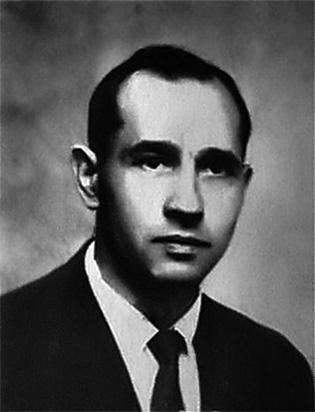Remigration or return? Back to the old homeland as a Ruhr Pole

After the beginning of the Second World War there was still regular contact with the Polish Tomczaks in Poznan, and family visits took place until 1943. But with the end of the war and the subsequent Soviet-controlled Communist government in the People’s Republic of Poland, all personal contacts between the two families in Poland and Germany ceased for the time being.
Also the Polish language of the family living in Germany had been lost in 1945. Since the Third Partition of Poland in 1795 and the process of “Prussianisation” and “Germanisation” in Germany, the Ruhr Poles had also been exposed to Germanisation pressures right into the 20th century. Despite the fact that the “Prussian Poles” who came from the new Prussian eastern provinces to live in the Ruhr, had German or Prussian citizenship and were well integrated into working life, they were still subject to ethnic and social discrimination. In order to preserve their language, culture and lifestyles, they mostly stayed amongst themselves, and this also included their choice of spouses. Polish language, culture and tradition withstood the pressure of Germanisation for a long time. But things changed during the Nazi era. “With Hitler’s accession to power, the situation of the Polish minority deteriorated dramatically. The associations and organisations were ‘brought into line’ and had to defend themselves against interference from outside. Their independent organisations were largely being shattered by increasing anti-Polish agitation, not to mention the abuse and assaults of Fascist bullies. […]. In Oberhausen in 1939 [...] leading members of the Polish minority were arrested and taken off to Sachsenhausen concentration camp”[1] The use of the Polish language among the Ruhr Poles was largely avoided due to fear of assaults. As a result the war and post-war generations hardly learned the language any more. This was also the case with the Tomczak/Mlinski family.
My mother Marlies and her sister Jutta grew up in a colliery house in the municipality Osterfeld in Oberhausen. There were seven persons in one small apartment: with my great-grandfather Józef Tomczak and great-grandmother Anna, my great-uncle Jan Józef and my grandparents Henriette and Heinz Johannes Mlinski. To all extents and purposes there was virtually no private sphere. The family liked to spend the summer months in the back garden. There they kept chickens, planted vegetables and had apple and plum trees.
My mother met my father at the end of the 1960s. In 1971 they were married and moved out of the colliery settlement. I was born in 1972 and remained the only child. The marriage of my mother and my father, Detlef Barteit, marked the first break in “tradition” in the history of our Polish family. The Barteit family was not Polish. They originally came from Lithuania and had immigrated to the Ruhr area via the former East Prussia in 1918.
My great-grandmother Anna Maria died in 1953, and my great-grandfather Józef died in 1976. At the end of 1979, my grandmother Henriette and her brother Jan Józef moved into a modern town apartment. The era of the colliery settlement was over and coal-fired heating was now a thing of the past. Here there was gas heating and an integrated bathroom with a shower and hot water supply.
[1] Netzwerk Interkulturelles Lernen, Geschichtswerkstatt Oberhausen e.V., “Polen im Pütt”. In: Geschichte(n) von Migration in Oberhausen – Hintergründe, Erinnerungen, Dokumente, Jg. November/2007, p.12.

























